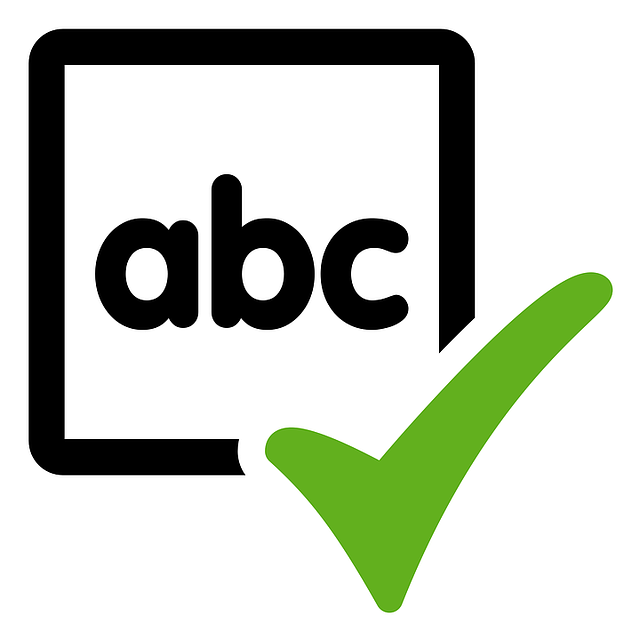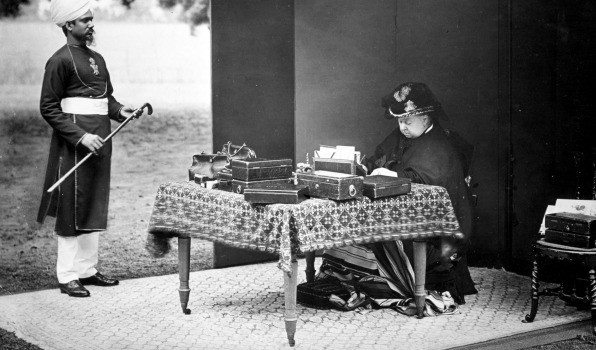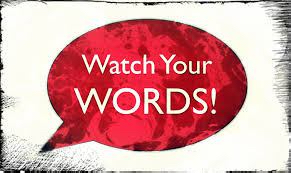Your copy’s a reflection of your company. Make sure it does you credit.
October 29, 2020 § Leave a comment

Your copy is a reflection of your company and how you work.
If your website is littered with mistakes, potential customers will worry that your work is slapdash too.
The same goes for anything else you use to spread awareness of your company – sales letters, social media posts, ad campaigns. It’s vital to iron out any problems with punctuation, spelling and typos.
People will judge you on your copy, make sure it does you credit.
7 essentials for successful copy
January 10, 2019 § Leave a comment
 When you write copy to advertise your business people will judge you on the quality of your writing. That includes your posts on social media.
When you write copy to advertise your business people will judge you on the quality of your writing. That includes your posts on social media.
You might not think that’s fair because whereas you’re top of your trade – as a tourist bureau, for example – you’ve never got to grips with spelling, grammar and proofreading. Writing isn’t even part of your job – so why would potential customers care about typos? Actually you know the answer – because you do it yourself. If you read company literature that’s sloppy, you’ve immediately got a picture of said company as ‘cheap’ and a business that doesn’t pay attention to detail. If they’ve got their own communication wrong, what else are they going to get wrong? Sometimes the company becomes a laughing stock (see picture above).
Here are 7 steps that cover the basics:
- Read what you’ve written – not what you THINK you’ve written. A fresh pair of eyes on the job is ideal. If you’re working alone, go make a cup of coffee and come back to the copy later after a little break. You’re much more likely to spot errors then as opposed to a long hard stare at the same words in one sitting.
- Illustrate it – which I agree isn’t copy, as such, but is an essential ingredient for making your post/poster/blog look enticing. Uninterrupted blocks of text are off-putting. If you don’t have a photo to accompany the text, companies such a Pixabay almost certainly do. Pixabay has a library of free images.
- Your headline is critical. Would it attract your attention? Perhaps you’re too close to the copy to know. Again, fresh eyes and an honest second opinion are useful. As a rule of thumb, don’t use your company name in the headline – it classifies the writing as definite advertising and reduces interest.
- Don’t talk posh. If you wouldn’t say it like that, don’t write it like that. Conversational rather than ‘stiff’ copy makes it easy on the reader, giving the copy a better chance of being read. I don’t mean slang!
- Don’t overlook numbers and little words like ‘to’ or ‘it’ . A department store local to me produced a promotional leaflet and got its telephone number wrong. It corrected its mistake by gluing white paper with the correct number over the error, thereby devaluing all the work it had put into the leaflet. I’ve also seen company literature where complicated words have been spelt beautifully but tiddly words have been allowed to morph into mistakes. Madly, headlines are often overlooked too.
- When it comes to blogs, make sure you categorise and tag accurately. Categories outline the subject you are writing about. Tags are more specific and pinpoint the topics within the subject. I like this explanation: a recipe for brownies on a food blog might have the categories ‘dessert’ and ‘baking’ and the tags would be something like ‘chocolate’ ‘brownies’ and ‘walnuts’. Every second around 17 posts are published on WordPress sites globally and you have to give yourself the best chance of being found.
- Lists are a great format to attract readers to a blog, either bulleted – or numbered like this one.
Emirates wins unsubscribe turkey trophy
February 9, 2018 § Leave a comment

Over the years I’ve come across many a company which makes it difficult to unsubscribe from their emails but Emirates, I think, takes the biscuit.
I’ve written a blog before about this because it takes us all so much time to unsubscribe. Sometimes I’ve wondered if it’s me being stupid but now I have Twitter to check if I’m alone. When Living Social UK presented me with so many options I really didn’t know exactly how to unsubscribe, I took to the Twittersphere to see if I was the only one with the problem.
@LivingSocialUK Please unsubscribe me from your database. I’ve tried to unsubscribe from your emails but don’t know if I have because you make it too difficult.
Some poor souls had tried six, seven, 10 times but were still receiving emails (before also taking to Twitter and begging to be removed from the database).
What I don’t understand is this: if you’ve decided you don’t want to receive an email from ‘blah’ company, them making it difficult for you to unsubscribe is only going to make you annoyed. You were mildly disinterested in the first place, now you’ve got real raging emotion.
The Emirates course of action is to make you ‘work for it’. I didn’t remember I was a member of its ‘Skywards’ scheme (I can’t even be bothered to tell you what that is – but Emirates told me in detail – in the hope, I suppose, of stopping me from unsubscribing. Of course it didn’t.) I struggled on, trying to log into the site, since at some point I had been a member of the scheme – and then it wanted me to remember the password I had created at the time I signed up for a scheme I couldn’t remember. Noooooooooooo! This is too much.
In the end, guess what I did? You’ve got it….broke my New Year’s resolution and just deleted the email. I’ll tackle it properly next time but I have deadlines and I don’t have time to fight with their unwieldy unsubscribe system. They are, by no means, the only company who makes it hard to unsubscribe but they are the worst I’ve come across this year.
And how will companies like Emirates manage when the new General Data Protection Regulation comes into force on 25 May this year. It’s the biggest change to data protection in more than 25 years.
The new General Data Protection Regulation does NOT allow the tacit or implied consent of their clients to be able to proceed with the processing of their personal data.
I may have signed up for their Skywards scheme at some point in the past. I no longer have any interest in it and the company’s making it difficult for me to untangle myself from it.
The likes of Emirates will surely no longer be able to send us information we don’t want with unsubscription puzzles that beat all but the super-patient with a bit of time on their hands.
Don’t ever rely on your spellcheck
November 24, 2016 § Leave a comment

I’m surprised I even had to write that headline – I thought everyone knew. Spellchecks are helpful – I use them as a guide – but if I left it at that, it would be corporate suicide.
I was chatting to a friend about this the other day and her reaction was: “Yes, you couldn’t afford any errors – being in the ‘words’ game.” That’s true. If I made mistakes people would be quick to point them out.
On the other hand she’s a gift retailer and her communications output is critical to her business, particularly at this time of the year when customers will be looking for Christmas presents.
She always sends an invite to a list of her customers with a message that says something like:
- Come along for an evening of wine, mince ties and a chance to buy gifts for your nearest and dearest, hopping at leisure.
Although only something like that because it actually reads:
- Come along for an evening of wine, mince pies and a chance to buy gifts for your nearest and dearest, shopping at leisure.
The point I’m making, is that a spellcheck wouldn’t have picked up any spelling mistakes in the first sentence because there aren’t any. The sentence just doesn’t make sense and it takes a human brain to work that out, not a computer.
In short, a spellcheck can tell you when a word is spelt incorrectly but not when it’s used incorrectly. Use it but know its limitations.
Remember…words can’t smile
September 9, 2013 § Leave a comment
If you’re ever tempted to send a jokey email to a customer – thinking a light-hearted message is going to be welcomed among the masses of corporate nonsense they receive, remember…your words may be taken at face value. Words can’t smile; they don’t have a tone of voice and they can’t see if the recipient is taking the message too seriously when it was only intended to be a bit of fun.
The reason I’m prompted to write this post is because I received one such ‘jokey’ email today and it sent me into panic mode because I thought I’d upset the client. I called immediately and asked if the copy wasn’t quite what the company had expected?
Of course it was, I was told – why?
Err..because they’d asked if I needed a bit more time to think about the wording before sending it over. That seemed a fair indication that they wanted something slightly different.
Oh no – they’d written that because they’d received the copy more quickly than anticipated and they were actually trying to compliment me.
Ah, I see. But.. joke ruined. Compliment ruined. Down to me now to salvage the working relationship. (It’s ok – I have. That’s why I feel comfortable writing about the incident!)
Anyway, it’s a good illustration of how, with the best will in the world, your joke can bomb because it’s written and the written word is completely unhelpful when it comes to delivering humour. That’s why ‘Smileys’ and other similar emoticons were invented, I presume, or why we have to say ‘haha’ at the beginning of a sentence we intend to be amusing.
Of course there are novels that are written with humour (we know that because we’re told in the blurb on the jacket, so we’re prepared) but when a business email comes and out-of-the-blue tries to be funny, it takes a very skilled writer to be able to pull that one off.
The answer? Be friendly and cut out corporate speak if you want to make good contact with you client but leave jokes/humour for face-to-face times. The written word can be so unforgiving.





